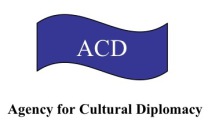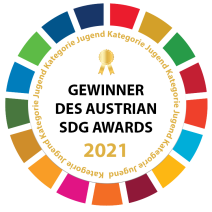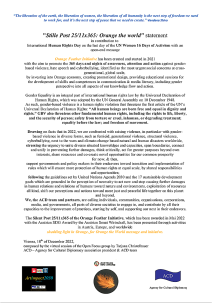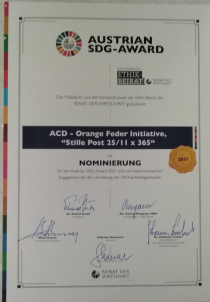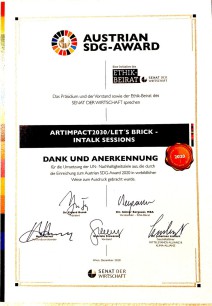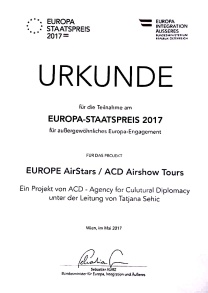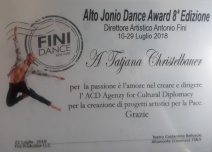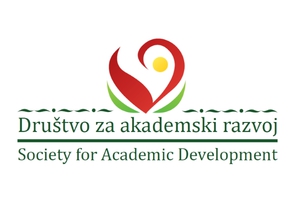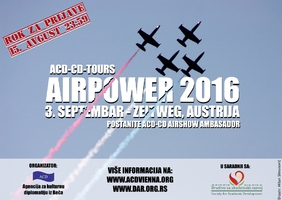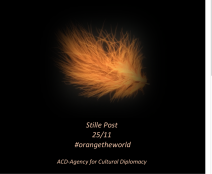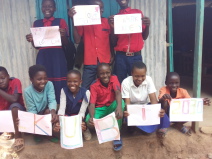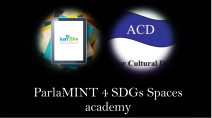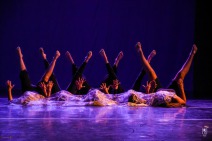
inSight meeting follow-up dots4futures 25
Supported by
PDF-Dokument [816.9 KB]
Cultural Diplomacy 2030 …
InSight_Well acts_dots4futures25
Inclusion &Diversity in Policy &Action:
Arts_Culture_Health_Wellbeing
on the World Health Day
7th - 8th of April 2025
in Vienna
Addressing current mental health issues,
caused by loneliness, social isolation, economic challenges
Exploring Creative Industries as drivers for change
Connecting visions with ambition and action
"The only thing worse than being blind
is having sight but no vision."
Helen Keller
Presentations on the nexus of arts, science,
and policy- cross-cutting: culture, health, inclusion & diversity
Invited and confirmed partners and guest presenters:
1st-day meetings on the 7th of April 10am
Morning session: Visiting Austrian national and international organisations
Afternoon Session at Vienna School of International Studies (Diplomatic Academy)
°Welcoming words: Amb.Dr. Emil Brix
°Welcoming remarks: Ireland’s Ambassador to Austria and Permanent Representative to the International Organisations in Vienna, H.E. Ambassador Cullinane
° Tatjana Christelbauer: event organizer, ACD-Agency for Cultural Diplomacy President, inclusive art educator: brief introduction about the initiative
° Keynote: Emilie Conway/Ir: D.A.D.A. Movement: arts4human rights, disabled artists and academics
° Dr. Luka Martin Tomazic /SLO, Alma Mater Europaea University: Human Rights, Freedom of Expression and Integrity
° Isabella Essl/AT Zero Project Austria, Inclusive Art
° Mag.a Tatania Fischer/AT: Braille House Vienna & Austrian umbrella platform of the Blind ÖBV) representative
2nd-Day meeting on the 8th of April:
Locations: Vienna Institue for Blind BBI
Welcoming remarks by the BBI director Mag. Horst Ganitzer, and presentations:
° °Emilie Conway /Ir: Keynote: arts4health
° Daniel Polz: Plaudernetz Austria/Vienna Social City
The role of media in providing inclusive artistic and collaborative space, empowering voices and engagement of people with disabilities”
Sensorium: Interactive workshops led by guest artists with students & teachers, presentations:
°Emilie Conway /IR: Jazz, art _therapy
°Arts4Health: Semantic Movement, interactive workshop/Tatjana Christelbauer MA/organizer, president of the hosting org. ACD-Agency for Cultural Diplomacy/AT,
°The BLIND / Artivist, street art/Nantes, Fr
° Mark Klenk "Words & Deeds" storytelling
° Saskia Tindle (UK): storytelling for screen readers: artwork of the painter David Tindle
4.30 pm-6.30 pm Reception at the Kunst-Café in Hundertwasserhaus (per invitation only)
with media presentation and exhibition of books and artworks presented by the guest artist
Event Manifest presentation, perspectives, event open-ended with
The main envisioned outcome of the event: new partnerships for change, projects, further collaborations, activities planned, new career opportunities for blind and diverse individuals in creative industries, diplomacy, and more, while enabling and co-creating inclusive environments for action and interaction of diverse actors, combating loneliness and social isolation with creative opportunities, improving mental health with engagement in social, cultural and political life stages, enabling economic growth through talent guide and the overall inclusive approach, thinking policies together, for better results by the implementation of agreements, cultural rights for all, inclusive and sustainable approach to Culture and cultural practices, considering the cultural democracy and freedom of expression
About
The inSight Well_Acts meeting is a follow-up meeting of the first event, which took place on 10th December 2024, International Human Rights Day:
inSight2030 … Soft Power Activism, Freedom of Expression,
Inclusion&Diversity in Policy & Action
The focus of the first meeting was on Intercultural dialogue on Cultural Diplomacy and Soft Power Human Rights Activism; Freedom of expression at the intersection of arts, science, new media & policy; AI-assistive tools, networks, and campaigns, with an inclusive approach, spotlighting the artists, scientists, and human rights activists with disabilities, particularly blind and visually impaired.
As active contributors to change toward a just and peaceful world through activities in the field of cultural diplomacy, ACD-Team engaged in the UNESCO MONDIACULT World Conference on Cultural Policy 2022 with their all-day meeting and project activities: Heartbell2030...#stayinlove with youth. Extended activities have been developed in collaboration with blind adults and communities in December 2024, following our first inSight meeting.
The Keynote was provided by a celebrated vocal jazz artist, a founding artist of the DADA movement, art therapist, and human rights activist from Ireland, Ms. Emilie Conway, who will engage again and support this meeting as our keynote speaker and art performer.
The second inSight meeting will build on the foundational discussions from the first, with a deeper exploration of cultural diplomacy with an inclusive approach, and of health as a human right, particularly from the lens of disabled artists, academics, policymakers, and human rights activists.
Connecting on the intersection of arts, health, and new media technologies,
we aim to broaden our understanding of how these fields converge to address critical issues such as accessibility, representation, and equity.
This inclusive approach not only highlights the voices of those with disabilities but also underscores the vital role of the arts and culture in advancing public health and promoting societal well-being.
In line with the World Health Organization's (WHO) endeavors, the meeting will emphasize how inclusion in health policy can provide multiple benefits beyond individual and community health and well-being. These include fostering economic growth, creating jobs, enhancing social cohesion, and improving workforce efficiency.
In line with the UNESCO MONDIACULT World Conference25, this gathering will contribute to shaping global conversations on inclusive arts and culture.
Importantly, connecting policies as a strategic way to succeed will be emphasized, ensuring that the policies driving change are cohesive, integrated, and supportive of long-term goals. This will foster the empowerment of marginalized communities, promote diversity, and support systemic change for a more inclusive and equitable future and broader societal and economic impacts of inclusive health and cultural, policy, while underlining the importance of cultural democracy and cultural diversity to be considered within all policies, as well as perceiving culture in general through the prism of sustainability, as an overall ethical common frame.
This interconnected framework highlights how combining health, arts, culture, and new media technologies within the creative industries can drive inclusive growth and societal transformation.
The approach to empowerment fosters economic independence, helping to reduce vulnerability to gender-based violence, enhance mental health and overall well-being, and promote a culture of equality
and inclusion.
Blind and visually impaired individuals are specifically targeted in this meeting to address the unique barriers they face in accessing health, arts, and cultural opportunities. These challenges often stem from a lack of accessible tools, inclusive policies, and societal understanding of their needs, which can limit their participation in creative industries and public health initiatives. By spotlighting their contributions and addressing these gaps, the meeting seeks to promote equity, amplify their voices, and demonstrate the critical value of inclusivity in driving societal progress.
ACD-Agency for Cultural Diplomacy Team promotes and supports the engagement of blind and visually impaired youth and adults in arts, cultural activities, and beyond. During the intensive collaboration with the Vienna Institute for Blind BBI within the 3-year ERASMUS+ projects, various educational materials, artworks, and media presentations have been created. During the ERASMUS+ project LeMOON multiplier event Klimate BBIennale in September, we created resources for Braille script in arts and literature, in the multilingual setting, together with our guests from the French Cultural Institute and Yunus Emre türkish Cultural Institute Vienna.
The right to health and other health-related human rights are legally binding commitments enshrined in international human rights instruments.
The World Health Organisation WHO's Constitution also recognizes the right to health.
WHO theme for 2025 underscores the commitment to achieving universal health coverage, ensuring that all individuals and communities have access to the health services they need without suffering financial hardship. It calls for a global effort to bridge gaps in health equity, access, and quality.
“It’s time to shift our mindsets and view health once and for all as an essential investment and not just a cost to the taxpayer,” (...) “Evidence across our Region and globally shows that investments in the health sector are not a drain on the economy – quite the opposite. In fact, the health sector provides multiple benefits beyond individual and community health and well-being. It promotes economic growth and job creation, contributes to social cohesion, and improves workforce efficiency, to name just 3.”
Dr Hans Henri P. Kluge
WHO Regional Director for Europe
Thinking disability through the prism of interaction
The World Health Organization updated and adopted the most progressive definition of disability in its history. According to the International Classification of Functioning and Health, disability is defined as an “interaction between an individual and the environment.”
This is a paradigmatic shift away from regarding disability as a static, physical, and/or mental disease towards an acknowledgment of disability as a highly individualized, lived experience that is profoundly influenced by social participation.
Guiding questions, thinking with cultural diversity
How are health and well-being supported through arts & cultural practice,
and
what experiences and examples can be found in the practice of professionals with disabilities?
What potential for change can be found in the sector of creative industries?
How is Human Rights Activism practiced by artists with disabilities, particularly, persons with visual impairment?
How is accessibility to health and job opportunities in the health sector experienced by people with disabilities?
What role can AI and new media technologies play in the empowerment and inclusion of persons with disabilities?
Multilateral collaboration: What supporting networks and initiatives are established and how are the engaged diplomats, readers, and teams supported by the local/national/international entities?
Backdrop
Loneliness
is a pervasive issue affecting individuals across various demographics, and recent research highlights the particular challenges faced by blind and visually impaired youth in Europe.
According to a comprehensive study conducted by the European Commission's Joint Research Centre in 2021, loneliness and social isolation have been identified as significant concerns among blind youth and non-blind in the region. Collaborative initiatives that bring together blind and non-blind youth present a promising avenue for reducing loneliness.
Engaging in joint activities, both virtual and in-person, can create meaningful connections and foster a sense of belonging.
Growing Concern: 13% of adolescents across 23 European countries report feeling lonely.
Anxiety and depression are the most common mental illnesses in Europe - more than half (55%) of all mental illnesses are
related to anxiety or depression (for girls it is even more than 70%). According to the results of an international survey conducted
by UNICEF and the Gallup Institute, in 21 countries in the summer of 2021, 19 percent of young people between the ages of 15 and 24 often feel depressed.
Country Disparities, Gender-specific, and diversity challenges: Loneliness levels vary significantly, emphasizing the need for tailored interventions.
An estimated 2.2 billion people are visually impaired worldwide.
According to research, visually impaired people experience loneliness differently than the general population. Brunes et al. (2019) conducted a large-scale study on 736 visually impaired and blind participants in Norway and found that their loneliness was greater, and more intense than that of the general population. Vision loss often results in significant disability and is associated with a substantial economic burden, reduced quality of life, concurrent medical issues, loneliness, and mental health problems. Social City Vienna's platform against loneliness and social isolation brings together the numerous collaborations, initiatives, and bodies of knowledge on this cross-sectional topic that is relevant to the future in Austria. In 2020, Caritas Austria established the Plaudernetz (Chatnet), a simple, easy-to-use way to find someone to talk to in times of loneliness. Furthermore, the Vienna House of the United Nations UN DIN is an independent and dynamic collective of UN personnel based in Vienna. Our members include staff living with disabilities, colleagues with family members who have disabilities, and those committed to learning about and promoting disability inclusion. The network spans various Vienna-based UN organizations (VBOs) and aims to create a welcoming, inclusive work environment for all employees.
In 2016, the Jo Cox Comission of Loneliness was established with the aim to investigate ways to reduce loneliness in the United Kingdom.
In Dublin, Ireland, the D.A.D.A. campaign started by celebrated artist and human rights activist Emilie Conway stands for Disabled Artists & Disabled Academics attesting to the coterie Emilie’s “speaking up” attracted to her over the past year. DADA’s mission is to achieve greater equity for disabled people by pointing out and challenging barriers to full participation and contribution to the arts, culture, economy, and whole of society. In Malta, since 1968, the Public Library has been providing the talking Book service, where volunteers go to the recording studio in Valetta to read out and record books of different genres. Furthermore, the Commonwealth initiative Braille & Talking Book Cooperative (CBTBC) is intended to promote the collaboration and sharing of resources among the Braille and talking book libraries of the Commonwealth and other interested institutions.
There are numerous examples of good practices, this is just a short list.
Arts4Health: Art practice enables interactive, participative, and integrative learning opportunities, and supports health in general, and well-being through multi-sensorial experiences and a variety of expressional forms. The first comprehensive report on evidence of Arts for health was launched by the World Health Organisation Europe (WHO) in 2019. Art as a form of cultural diplomacy for promoting and advancing human rights, has historically relevant evidence. Artists worldwide are engaged in promoting human rights and addressing human rights violations, spreading awareness about political, social, and environmental concerns, advocating for inclusivity, and challenging discriminatory practices through arts and cultural expressions.
The cultural and creative sector
According to a recent report by UNESCO, the cultural and creative sector accounts for 3.1 percent of the global gross domestic product (GDP) as of 2022. This rapidly growing sector generates nearly 30 million jobs worldwide and accounts for 6.2 percent of all employment.
The creative and cultural sector can serve as a powerful means of advocacy, empowerment, and social inclusion, especially for marginalized and vulnerable communities. Several studies have shown that an arts education has a positive effect on the self-esteem of at-risk youth and enhances their resilience. It also enables those struggling with mental health and social issues to build relationships and engage positively with others in their communities.
(Source: World Bank Blog)
Creative industries account for more than 10% of all Austrian enterprises (around 42,000) and for 3.8% of the gross value added - almost as important as tourism with 4%! They are one of the Austrian growth drivers, having generated a total revenue growth between 2008 and 2016 of 21% (overall economy: 8%) and an employment growth of 16% (overall economy: 7%). With 91% of the creative companies being innovation active, 75% contributing to product or service innovations, and 44% dealing with new business models, the creative industries are a key innovation driver for the Austrian economy.^
Austrian Zero Project runs initiatives for inclusive employment, such as events and publications. The Zero Project seeks innovative forms of art and expression worldwide that allow people with disabilities to actively participate in the arts and realize their full potential. The Essl Foundation supports inclusive art projects.
“Bringing the arts into human life through activities such as dancing, singing, visiting museums, and concerts offers a new dimension in terms of improving physical and mental health,”
Dr. Piroska Östlin, acting WHO Regional Director for Europe.
(WHO Europe Report Art&Health 2019)
Creative Industries, Orange Economy
It is important to reflect on the nature of economic growth and the need to better capture the different dimensions of social progress, including economic activity, social and cultural well-being,
and sustainability. The European Pillar of Social Rights tries to pave the way towards fair and well-functioning labor markets and social protection systems. Access to social protection for those in
need should be ensured while making sure that everyone can participate in economic, social, political, and cultural developments.
Recognizing the significant global economic and social contributions of the cultural and creative sector—also known as the “orange economy, the impact of art and cultural practices on health & well-being, and the potential of AI and digital tools to increase the accessibility to arts and cultural practices with an inclusive approach, this meeting seeks to inspire the development of collaborative networks, sharing and further co-developing innovative practices, and actionable solutions toward justice, equity, and dignity for all.
Context:
Grounded in the ACD-concept of Cultural Diplomacy2030, while underlining the importance of the inclusive engagement of diverse actors at a cross-generational scale, and including the gender perspective & cultural diversity as the most relevant in the compliance process toward a more just and peaceful world & life with & within, the hosting organizer of the meeting, ACD-Agency for Cultural Diplomacy opens new space for dialogues and collaboration, while connecting their established platforms, such as the artImpact2030 and the dots4futures, both aimed in promoting art-based practices on the interface with science and policy, with the European and Global inclusive approach, within the ethical frame of the UN Agenda2030 and its sustainable development policy implementation in the EU and beyond.
The EU is committed to supporting and promoting culture as an essential contribution to human rights and a key element of good governance, inclusion, and sustainable growth.´ [4] inclusive, people-centered, and context-relevant approach."[2]
EU-founded projects such as ERASMUS+, HORIZON, New European Bauhaus, and many more enable the engagement of diverse actors, who are fostering inclusion and art-based engaging activities, such as civil society organizations and cultural associations, recognized as vital to the attainment of human rights, the rule of law, democracy, and stability, while helping devise and implement external EU policies and programmes so that they meet people's needs, reduce inequalities, and fulfill the central commitment of the 2030 Agenda to leave no one behind.
Inclusive, diversity-aware policy & its implementation:
Inclusive thinking and practice at cross-sectoral and cross-policy scales recognize diversity awareness as a foundational principle for fostering a just and equitable society. Ensuring accessibility and creating opportunities for engagement that transcend social, economic, physical, or mental barriers are essential to building cohesive, inclusive communities where everyone can thrive.
UNESCO's Re|Shaping Policies for Creativity report highlights the potential of art-based methods to create mutual understanding and advance global partnerships.
Cultural diversity in its broadest sense, encompasses not only different cultural backgrounds but also diverse abilities, experiences, needs, and interests.
Understanding culture through the prism of its diverse situated and embodied expressional forms grounded in humans' need to express, understand, and communicate their interaction with and within diverse environments and framing the cultural practices and freedom of (artistic) expression within the UN 17 SDGs, the InSight platform and meetings are aimed at providing space for intercultural dialogue and engagement of diverse individuals and communities, without pointing out one particular "mainstream culture or artistic style of expression", which is perceived as exclusive when not associated with the 17 UN SDGs and Human Rights Delaration´s main ethical aspect: DIGNITY-environmental, human and planetary dignity.
Thinking with these premises, the cultural policy may be included within all other policies and include the aspects from all other policies, as culture cannot be separated from health, wellbeing, ecology, peace, and justice when practiced with consciousness about its functional relational impact.
Multilateral partnerships and global Networks & new media technologies for good:
UNESCO emphasizes the need to leverage AI ethically in cultural contexts, ensuring equitable access and representation in line with the 2030 Agenda for Sustainable Development. Policies stress the role of inclusive digital platforms in fostering global dialogue. UN and EU strategies on cultural diplomacy stress the importance of empowering CSOs to connect diverse communities.
UNESCO policy lab: “Various movements, including those seeking gender, climate, and economic justice need to coalesce to pressure for eco-social welfare (Jones and O’Donnell, 2018). At every level, whether in ideas, language, or imagination, collective mobilization, and inclusive participation are needed to build our transformative power.´ [3] The role of culture as an enabler and driver of sustainable development was acknowledged by the international community at MONDIACULT 2022 convened by UNESCO, the largest world conference devoted to culture. For the first time, culture was recognized as a “global public good”. States made a strong call for culture to be included “as a specific objective in its own right” among the next United Nations Sustainable Development Goals.
arts_health_wellbeing: Health culture 2030 …
through art is a cornerstone of cultural policy promoted by UNESCO and the European Union, emphasizing its role in fostering diversity and inclusion.
UNESCO’s programs, such as the Convention on the Protection and Promotion of the Diversity of Cultural Expressions, advocate for artistic freedom as essential to pluralism and intercultural dialogue. Similarly, the EU supports initiatives like Creative Europe, which funds projects that celebrate diverse voices and ensure equitable participation in cultural life. Together, these frameworks protect artists’ rights while promoting creativity to bridge cultural divides and enhance mutual understanding.
Artistic freedom of expression and human rights activism intersect as powerful tools for amplifying marginalized voices, including those of individuals with disabilities, such as the visually impaired. Art enables these voices to challenge societal barriers and reimagine inclusion, transforming public perceptions and fostering empathy, but also advocate for the rights of diverse individuals to access and contribute to cultural life. According to the EU-Poliicy Brief on Arts, Culture, and Mental Health (2023), an inclusive, life-course perspective that promotes the Arts and Culture for improving well-being has the potential to generate the most significant societal and mental health advantages. It is essential for both preventing and reducing risks associated with the growing mental health challenges we face.
These frameworks, while instrumental, gain meaning through the people who engage with them—writers, artists, policymakers, activists, and audiences.
#stayinlove - approach
Practicing, communicating, understanding, and promoting arts and cultural practices can therefore be perceived as a way to understand the term "dignity" as a way of acting and acting toward, with, &within, without causing harm, and damage,
but with awareness about the next, be it a human, nature, or other species.
The #stayinlove-approach is grounded in the socio-educational concept of the Austrian pioneer of modern kindergarten pedagogy Margarete Schörl.[2]
“Love to our next” is the core principle of M. Schörl´s educational concept which is based on humanistic value axioms such as human dignity, solidarity, the common good, subsidiarity, freedom, and responsibility, offers a wide range of thought and action tools for education for life in a multifaceted interwoven world, as responsible individuals and members of diverse communities.
Proposed Topics and Sections for presentations:
Part 1: Arts4Health
Introduction to the Intersection of Arts and Health
o Overview of how arts contribute to mental health and well-being.
o Exploring creative methods in art therapy for disability inclusion and mental health support.
o AI-Assisted Tools for Arts in Healthcare
o Discussion on new media technologies and their role in art creation and mental health promotion.
o Case studies of AI tools assisting in the creation of accessible art and therapeutic practices.
Spotlight on Disabled Artists and Activists
o Presentations from blind and visually impaired artists, scientists, and activists.
o Showcasing their contributions to the health and arts sector.
Part 2: Cultural & Health Policy
Cultural Diplomacy, inclusive approach; Health as a Human Right: Policy Perspectives
o Deep dive into the policies surrounding health as a human right, with a focus on marginalized communities.
o The role of arts and culture in influencing and shaping health policies.
Inclusive Approaches to Policy Development
o Strategies for creating inclusive policies that address health, culture, and disability.
o Addressing systemic barriers for disabled artists, diplomats and activists in policy structures.
Global Frameworks and UNESCO Initiatives
o Contribution to the UNESCO MONDIACULT World Conference25: Shaping global dialogues on inclusive arts and culture.
Part 3: Employment and Economic Empowerment
The Role of Arts and Culture in Employment
o Exploring how the creative industries provide employment opportunities for disabled individuals.
o Case studies on economic empowerment through artistic endeavors.
Policy-Driven Employment Strategies
o How inclusive policies can drive job creation in arts, culture, and healthcare sectors.
o Strategic employment initiatives for disabled artists and human rights activists.
Economic Independence and Gender Equality
o Linking economic empowerment to reducing gender-based violence.
o Empowering marginalized groups through accessible and sustainable employment in creative sectors.
inTalk with attendees:
Networks and Campaigns of personnel with disabilities of the UN organizations and civil society; Collection of quotes, cultural policy recommendations, composing the final statement … connecting dots4futures
“Cultures don´t meet, people do”
& connect the dots4futures
Tatjana Christelbauer MA
Organiser, President ACD-Agency for Cultural Diplomacy association
Sources, Research papers:
Loneliness EU platform info: https://joint-research-centre.ec.europa.eu/jrc-news-and-updates/monitoring-and-tackling- loneliness-europe-released-data-first-eu-wide-survey-2023-06-06 _en
Loneliness project webpage: https://joint-research-centre.ec.europa.eu/scientific-activities-z/loneliness/eu-loneliness-survey _en
https://europepmc.org/article/pmc/pmc8267375
Loneliness research, results: https://publications.jrc.ec.europa.eu/repository/handle/JRC125873 https://europepmc.org/article/MED/34639809#free-full-text https://publications.jrc.ec.europa.eu/repository/handle/JRC128731
Blind & visually impaired:
Ami Rokach A, Berman D, Rose A. Loneliness of the Blind and the Visually Impaired. Front Psychol. 2021 Jun 25;12:641711. doi: 10.3389/fpsyg.2021.641711. PMID: 34248743; PMCID: PMC8267375.
Front Psychol. 2021; 12: 641711. Published online 2021 Jun 25. doi: 10.3389/fpsyg.2021.641711 https://www.ncbi.nlm.nih.gov/pmc/articles/PMC8267375/
Austria: Social city Wien:
https://gesundheitsziele.wien.gv.at/plattform-gegen-einsamkeit-in-oesterreich/ ;
Caritas: https://www.caritas-wien.at/ueber-uns/news-presse/information/news/93188-wie-einsam-ist-oesterreich-
caritas-und-magenta-praesentieren-neue-sora-studie-und-ziehen-bilanz-zu-projekt-plaudernetz/
References
1. Hawkley, L. C., & Cacioppo, J. T. (2010). Loneliness matters: a theoretical and empirical review of consequences and mechanisms. Annals of Behavioral Medicine,
40(2), 218–227.
2. World Health Organization. (2019). "What is the evidence on the role of the arts in improving health and well-being? A scoping review."
3. European Commission. (2020). "Pathways to School Success: Key Findings from the Wellbeing Module of the 2018 European School Survey Project on Alcohol and Other Drugs (ESPAD)."
4. European Commission, Joint Research Centre. (2021). "Loneliness and social isolation in the European Union." Retrieved from https://knowledge4policy.ec.europa.eu/publication/loneliness-and-social-isolation-
5. UN Women Policy Brief 2023: No Woman Left Behind: Closing the Gender and inclusion gap in Eye Health: Why improving women’s eye health is essential to achieving the SDGs:
6. https://www.unwomen.org/sites/default/files/2023-09/policy-brief-closing-the-gender-and-inclusion-gap-in-eye- health-en.pdf
Good practices:
Noneliness: a gamified mobile app. https://knowledge4policy.ec.europa.eu/sites/default/files/Noneliness%20App%20Presentation.pdf
UK: https://www.ncbi.nlm.nih.gov/pmc/articles/PMC5851382 /
EU: Building a Union of Equality: https://state-of-the-union.ec.europa.eu/state-union-2022/state-union-achievements
Buddies program by Dolly Parton: https://dollyparton.com/imagination_library/buddy-program
